What do you think about when you hear the term colonialism? The Oxford dictionary defines colonialism as
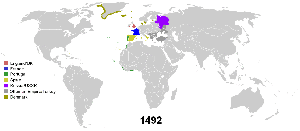
It’s a system that humanity has used for millennia: aggressor conquers and then exploits the country’s resources while eradicating or exploiting the original population. The history of modern colonialism begins in the 15th century, but these patterns of conquest can be found in ancient times as well. The ancient Greeks and Phoenicians would colonize lands they deemed to be uninhabited, even though there were plenty of conflicts with “barbarian tribes” already living there. The Roman empire spread through large parts of Europe, North Africa and Asia—subsuming or enslaving local populations as they went. The Middle Ages saw the spread of the Huns, the Goths, the Vikings, and many others. So it’s something that groups of humans just do, in a bid to secure resources.
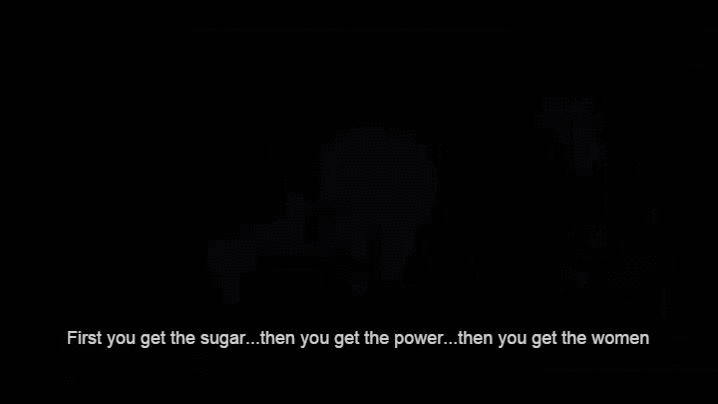

In ecology, there are benefits to an organism that is a better competitor than its rival. This can be in terms of access to mates, or access to food/water… or sugar (as Homer aptly summarizes). The animal that is better at accumulating food, or defending mates, or establishing territory will be more successful at passing down its genes. These principles of competition—namely, the successful acquisition of resources at the expense of others—sounds just like colonialism to me.
We are primates and share many behavioural traits and attributes with our primate relatives, including both major types of competition displayed by other animals; interspecific competition—where we compete with other species—and intraspecific competition—where we compete with others of our own species. Humans’ vast aptitude at interspecific competition influences how we define ourselves as a species. We’re better competitors than most other animals, so we drive them into submission and subjugation for our own benefit. As we began to domesticate animals, we began to grow a sense of human uniqueness—holding ourselves above and distinct from other animals. We’ve not just entitled ourselves to use interspecifics for our own benefit, we’ve mandated it and codified Dominion ideology in our bible.
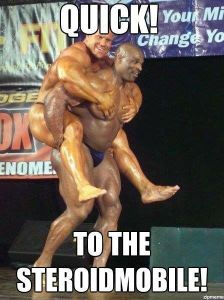
In terms of biology, competition is not a word that’s laden with moral judgement. [Feel free to judge that super competitive bro at the gym all you want]. Competition is just a process that shapes community structure and is integral to natural selection. However, colonialism—the application of competition to other human societies—has become a dirty word. Thankfully, we’ve come to value the rights of the colonized, and have begun to try to undo our history of colonialism on others—the basis behind reconciliation in Canada right now (finally!).
Historically, all the resources where we colonized were considered ours to rightly exploit—be that wildlife (interspecific competition) or other people (intraspecific competition). We are finally waking up to the ethics around using other people like this, but we continue to think of all other organisms as resources to exploit as we see fit. We think of the places we have colonized as “ours”, and ours alone—tolerating the presence of pets and livestock but not animals we have no control over. We’ve established cities within the habitats of other species, and then get upset when we’re left with urban wildlife. There’s vitriol over the deer that dares to eat your garden plants, or the raccoon that rips up your trash. But maybe, along with our philosophical shift away from subjugating other humans (intraspecific competition), we can also find the intrinsic value of wildlife in the areas we have settled too—we don’t need to try to force them into submission or eradication. We can coexist if we can think of them as having a value in their own right, not merely in terms of their use (or not) to us. We don’t need to exclude other species from the resources we share. We are, after all, just another species within the ecological community.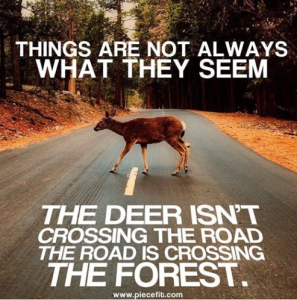
Urban wildlife aren’t in our back yards, we’re in their front yards.
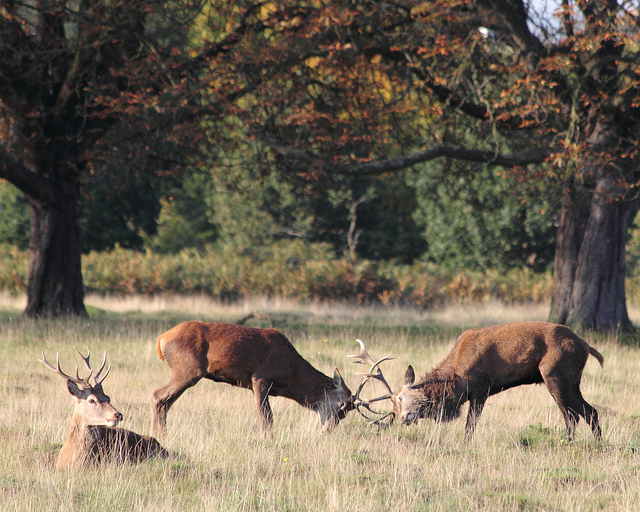

Leave a comment